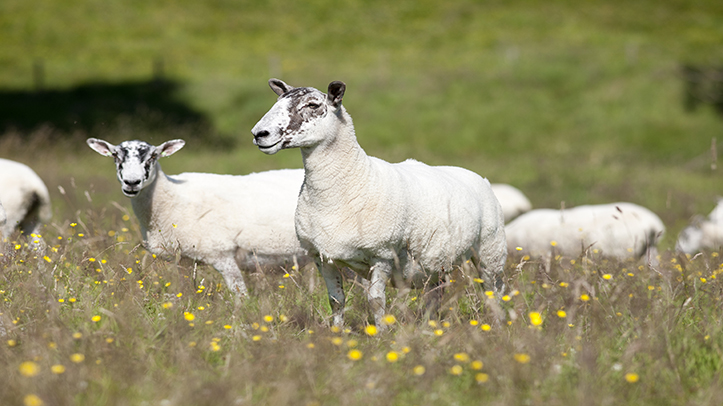In response to the growing problem of sheep scab, a regional programme has successfully implemented a community-based approach to reduce the prevalence of the disease in three hotspots in England.
Sheep scab, caused by infestation with the ectoparasitic mite, Psoroptes ovis, leads to clinical disease, economic losses and severely compromised animal welfare. It is estimated that there are around 10,000 outbreaks of sheep scab in the UK each year, with many flocks suffering from persistent infestations in regions where the disease is common.
Sheep scab costs the UK sheep industry £80-200 million annually. In recent years, sheep scab mites in the UK have developed resistance to the injectable endectocides (macrocyclic lactones) used for their control. As such, it is crucial that the sheep industry takes decisive action to control this disease.
Recently published in Veterinary Record, the “For Flock’s Sake” programme involved 300 farmers working together in clusters in three high-risk scab areas: the North (Cumbria, Lancashire, North Yorkshire, and Northumberland), the Midlands (Shropshire and Herefordshire) and the Southwest (Cornwall and Devon).
Within each hotspot, the programme focussed on ‘clusters’ of farms that share common boundaries or used the same common grazing, where the aim was to foster cooperation in the control of scab.
Participating farms provided a detailed history of their previous experience of scab outbreaks and agreed to sheep scab blood testing of a single management group of 12 animals from their flocks during the summer of 2021 and then again in 2022. The use of the blood test on all farms was pivotal, allowing the identification of farms with subclinical sheep scab.
Over the two years of the programme, there was a significant reduction in the incidence of sheep scab overall. The results show that this type of targeted approach to disease control can be effective if all stakeholders are involved from the outset.
A key aspect of the programme was that participating farmers agreed to share the results of their flock-level blood tests with other farmers and coordinate treatments within their cluster. The work shows that coordinated efforts can help prevent infestations from persisting and spreading, and sharing test results and responsibility among farmers can help reduce the stigma associated with sheep scab.
Regional coordinators from the National Sheep Association (NSA), ADAS, and the Farmer Network played pivotal roles in the success of the programme, by engaging with local farmers and ensuring smooth communication between participants, veterinarians, and mobile dippers for scab treatment.
The authors conclude that the programme provides an effective model that, with some modifications, could be extended nationally to achieve long-lasting, sustainable control of sheep scab.


